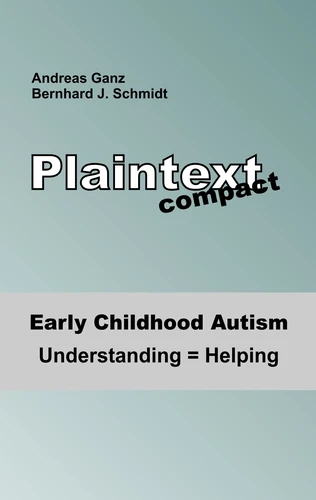Early Childhood Autism. Understanding = Helping
Par : ,Formats :
Disponible dans votre compte client Decitre ou Furet du Nord dès validation de votre commande. Le format ePub protégé est :
- Compatible avec une lecture sur My Vivlio (smartphone, tablette, ordinateur)
- Compatible avec une lecture sur liseuses Vivlio
- Pour les liseuses autres que Vivlio, vous devez utiliser le logiciel Adobe Digital Edition. Non compatible avec la lecture sur les liseuses Kindle, Remarkable et Sony
- Non compatible avec un achat hors France métropolitaine
 , qui est-ce ?
, qui est-ce ?Notre partenaire de plateforme de lecture numérique où vous retrouverez l'ensemble de vos ebooks gratuitement
Pour en savoir plus sur nos ebooks, consultez notre aide en ligne ici
- Nombre de pages124
- FormatePub
- ISBN978-3-7504-7449-9
- EAN9783750474499
- Date de parution10/12/2019
- Protection num.Adobe DRM
- Taille223 Ko
- Infos supplémentairesepub
- ÉditeurBooks on Demand
Résumé
Even early childhood autists can, contrary to popular belief, develop normally.
They want and can communicate and interact, and just like all other children, they need social interaction for their development.
If there is a disruption of social interaction, then there will be a disruption of development.
How and why it can lead to disturbances of social interaction, and what consequences they have, is presented with a development-dynamic approach - so far denied autistic.
At the same time, support programs are presented aiming at restoring the social interaction between parents and autistic children.
And: "It's never too late."
Even early childhood autists can, contrary to popular belief, develop normally.
They want and can communicate and interact, and just like all other children, they need social interaction for their development.
If there is a disruption of social interaction, then there will be a disruption of development.
How and why it can lead to disturbances of social interaction, and what consequences they have, is presented with a development-dynamic approach - so far denied autistic.
At the same time, support programs are presented aiming at restoring the social interaction between parents and autistic children.
And: "It's never too late."























